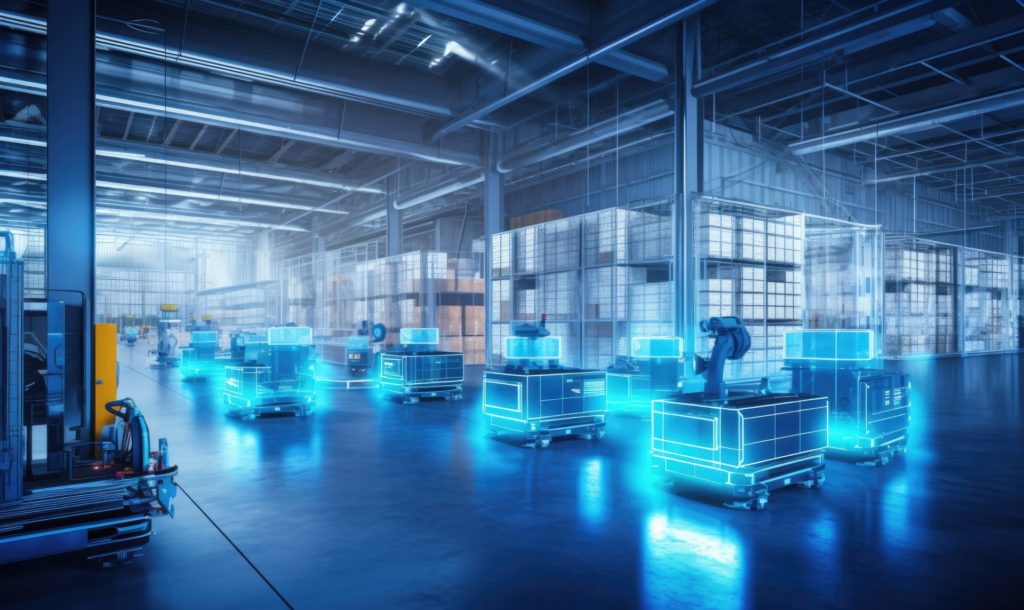The global smart manufacturing market is expected to grow from $181.3 billion in 2020 to $220.4 billion by 2025.
COVID-19 has temporarily slowed the expansion of smart manufacturing. But the pandemic will ultimately serve as a catalyst, accelerating the sector’s growth in the coming years.
Businesses around the world are looking for ways to digitize and strengthen their manufacturing processes. Effective use of collaborative robots and the establishment of a robust digital twin will ensure production can continue even with limited staff. This is crucial at a time when employees need to distance or even be sent home in the event of an outbreak.
Though coronavirus vaccines are on their way, smart manufacturing is here to stay.
Digitally-enabled processes are more resilient in the face of disruptions and implementing smart manufacturing leads to many additional benefits. These include increased productivity, greater sustainability, improved operations, and enhanced capacity for innovation.
But organizations can’t simply implement new technology and expect to reap these rewards automatically. The right people with the right skillsets are needed if smart manufacturing efforts are to succeed.
The manufacturing workforce of the future
Manufacturing has changed dramatically over the last two decades. Greater digitization has led to a 25% increase in productivity over that time. Even as technology enables greater output, fewer workers are needed to perform essential tasks.
Despite these trends, the current talent pool in many regions won’t be able to meet the future demands of manufacturing. Manufacturing businesses must start upskilling their workforces today if they want to remain competitive in the post-COVID-19 landscape.
The sector has traditionally focused on technical skills. But digital skills are increasingly required as robotic process automation and artificial intelligence become integrated into the supply chain.
Automation tools are fairly simple and intuitive to use, which means training can be done with relative ease. AI training, on the other hand, is a more complex process as AI tools can be used for everything from developing commodity strategies to informing pricing decisions. Employees need to understand these tools and how they work in order to make full use of them.
The goal here should be two-fold: improving productivity and efficiency to satisfy customer needs and creating more meaningful and rewarding jobs for employees.
Of course, workers need to be digitally literate in order to use new technologies effectively. But as technology begins to replace repetitive and mundane tasks, workers will be expected to perform tasks requiring a delicate touch. So, along with technical training, employees should also be trained to build up their creativity, critical thinking, and interpersonal abilities.
Attracting millennials in the recruitment strategy
Aside from training current workers, manufacturers must also develop a strategy to find and attract millennials. These young, tech-savvy workers can be just what organizations need to realize their smart manufacturing ambitions. However, they will face stiff competition for talent from nimble startups and tech titans like Google.
To attract younger workers, companies should make it clear to them that their ideas will be valued just as highly as their skills. Naturally, they’ll need to fit into specific roles, but giving them the freedom to be creative can lead to increased productivity and greater job satisfaction.
Manufacturers should also consider cooperating with universities, research institutes, and specialist recruitment companies in order to capture digital talent.
The role of governments
Singapore – whose manufacturing sector accounts for about 20% of the country’s economy – recognized the need to address skill shortages in manufacturing in 2017. Since then, it has implemented numerous initiatives which offer an excellent roadmap for success in the area.
For example:
- The country’s Professional Conversion Programs help workers move into manufacturing careers through retraining initiatives.
- The SkillsFuture Career Advisor Program connects workers with industry veterans who act as career advisors.
- The Place-and-Train and Attach-and-Train programs ensure that the skills of workers match the needs of companies.
Such initiatives can be mutually beneficial for governments and the manufacturing sector alike. Smart manufacturing can be an excellent vehicle for growth, as governments seek to recover from the economic aftershocks of COVID-19. Ultimately though, the responsibility of finding the right people will fall with the manufacturers themselves.
Gaining a recruitment edge and attracting top talent
Connexus Global are currently working with several high-profile companies to help them build up their smart manufacturing capabilities. We’ve been increasingly focused on recruiting in fields like smart factories, big data, cloud systems, business analytics, and robotics and automation.
Highly-skilled data scientists are among the most sought after talents of the era, and the COVID-19 pandemic will only increase their value in the job market. If your organization wants to hire talented individuals in these fields, we can show you the way forward. Contact us today to learn more.









